SEOUL, SOUTH KOREA FOR FIRST TIMERS
Palaces
with the finest architectural details, hot and spicy cuisine matched with kimchi, cinematographic settings of
Korean dramas, streams, traditional villages and drinking sprees at sidewalk
tents set up at night are but some of the interesting features of South Korea.
Seoul
is indeed a vibrant city. But for time
and budget constraints, it is impossible to discover almost everything that one
envisions it to be.
THE T-MONEY CARD
Upon
arrival at the Incheon International Airport, it is advisable to purchase a
T-money card at a nearby convenience store (e.g. GS 25, CU, 7-Eleven, Mini
Stop, With Me, By The Way, Story Way), which will be used for commuting either
through bus (on selected companies), taxi and metro rail transits.
T-money
is a transportation card as well as a device used to pay for taxi fares and in
some instances, to purchase goods at the convenience store. When using the T-money, the public
transportation fare is 100 won cheaper than when paying with cash, and unlike
cash fares, T-money can be used when transferring from one bus to another, one
subway line to another, or from bus to subway or vice versa (within a transfer
time limit) at no extra charge. T-money
does away with the hassle of purchasing single journey subway tickets and there
is the option of refunding the remaining balance once you leave South Korea.
TRADITIONAL VILLAGES
We
get to know the culture of a particular country through a random visit at
traditional villages. Armed with that
particular principle, we walked and searched for these traditional villages and
discovered two.
A
walking distance from where we live, we were lead to Bukchon Hanok Village. The
sloping terrain posed as a challenge in the stroll but we were comforted by the
below zero temperature producing no sweat in this stint.
The
aligned residential houses have an architectural design unique to this part of
the East Asia region. The standard
design is even more noticeable on the intricacy of details the roof tiles have.
Passing
by the narrow alleys on upward and downward slopes, the walk became a mandatory
exercise. Stalls and restaurants
offering both Western and authentic Korean cuisine adds up to the charm of the
village as well. Street food offerings
are attention-grabbers as usual.
Namsanghol Hanok Village is considered as one of the
most beautiful villages of Seoul. To
revive the ancient serenity of the area, water was made to flow in the valley,
a pavilion was built, and trees were planted.
Five traditional houses from the commoners’ houses to houses of the most
powerful Confucian bureaucrats were moved to the area of 7,934 square meters in
the traditional garden.
To
help visitors understand traditional Korean life, furniture that reflects the
status of the people who lived in these houses were placed inside the
buildings. There is likewise a
Traditional Craft Hall that sells works by Intangible Cultural Assets artists
and other souvenir goods.
Admission
is free at the said village. A known
landmark near the village is the Arirang television network, which I guess
everyone is familiar to.
The
compound showcases different traditional Korean houses where we hopped on from
house to another and stroll around the garden that surrounds, popular for
pre-nuptial and wedding photo backdrops.
MYEONGDONG BY DAY AND NIGHT
If
there is one area in Seoul that we have frequented, it is that of Myeongdong. The vicinity of Myeongdong is one of the
busiest, with restaurants, shopping malls, coffee shops and interesting
attractions to drop by.
Shopping
malls of interesting architectural facade is a common sight. With such a vast area, every detour and
intersection exiting the Myeongdong subway station provides landmarks worthy of
visit.
Walking
down the narrow alleys bounded by malls on both sides, we were greeted by
mascots of a dog and a cat. Interesting
find it is and since it may be difficult to find one back home, we tried both
cafés.
DOG CAFÉ
Address:
22-2 Chungmuro 1(il)ga, Jung-gu, Seoul
Operating
Hours: 1:30PM to 9:30PM
At
the Myeongdong Station, Exit 6, we reached the Nature Republic building, turn
left and walked straight until we reached a small alley and on the right there
is a building with the signage of a dog café.
The dog café is located at the 4th floor of that building and
once we arrived at the floor, we could hear the barking of the dogs.
There
is an entrance fee of 8,000KRW which comes with a complimentary drink. No food is allowed and a short briefing is
made with pictures of dogs to be avoided as they might bite.
It
was a different kind of experience actually that I won’t recommend for people
who easily panic upon hearing the dogs bark.
CAT CAFÉ
On
the opposite site from the Dog Café, marking the Nature Republic as reference, we
turn right and look up for the yellow signage with a cat as its image, to
experience an afternoon with these adorable cats.
A
fat and fluffy Persian cat welcomed us at the doorstep. That itself was enough for us to enter the
café at a charge of 8000KRW inclusive of complimentary drinks. It opens earlier than the dog café.
The
cat café is more relaxing. It actually
appeared more like a playground for equally adorable kids. It was fun going after these cats and the
Korean kids.
CARTOON STREET
In
search for the way to the Seoul Tower, opposite to the exit where Uniqlo and
Nature Republic buildings are, we were lead to alleys and coffee shops
decorated and painted in colorful graffiti. Statues of animation characters
likewise surround, which some are unfamiliar in my case.
Animation
and cartoon is an important cultural content and a leading future growth
engines for tourism and entertainment industries. Situated near Gate 3 of the Myeongdong Subway
station, we followed the trail and were lead to what locals call the “Imagination Park”. The park allows relaxation for visitors and
serves as the starting point of the Cartoon Street, attracting many visitors to
enjoy images of Korean popular drama and its original cartoons.
Namsan’s
retaining wall displays famous cartoon characters of 40 dominant artists,
including Lee Hyunse, Heo Youngman and Hwang Mina. This is known as the Animation Hill.
The
anime cinema and the park serve as landmark for the bus stop to the iconic
Namsan Tower.
SEOUL TOWER
A
visit to South Korea would not be complete without getting a closer look and a
glimpse of the Seoul Tower. From the Ani
Center, there is a bus stop going to the tower.
Upon
arrival, the changing LED light of the Tower was a pleasant greeting. I was reminded of the mandatory visit to The
Bund of Shanghai, China. They have the
same features only that the same is not surrounded by skyscrapers.
I
noticed a wooden statue serving as part of the façade of the Seoul Tower,
situated in one corner. The said statue
has the Korean smile as its subject and said to have been sculpted by craftsman
Kim Jong-heung. The latter was trained
by Important Intangible Cultural Asset No. 108.
The material is actually a 75-year old mulberry tree which had been
destroyed by a strong wind in May 2014.
From
our vantage, the panoramic city light of Seoul City is apparent and so is the
traffic. It is advisable to visit the
Seoul Tower at night. Though, it could
be equally beautiful in the morning.
GANGNAM
Out
of curiosity, we decided to pass by the Gangnam district of Seoul. I had no idea what to witness on this part of
Seoul, other than the mere mention of the district in the famed Korean pop song
turned dance craze that is absolutely known worldwide.
Oppa Gangnam style?
In a
short span of time, noticeable are the outstanding architectural façade of the
district known to be the central business district of Seoul.
CHEONGGYECHEON STREAM
The
walk along the stream was rather brief for us.
Located just off Sejongro, one of the busiest boulevards in Seoul, it
was at first a challenge for us to find the stream as even locals can’t
understand what we are talking about.
The
reward though of searching for the stream, is that, we were lead to take a
glimpse of the varied palace gates and landmark statues of the city, in the likes
of Nandaemun Gate and the famed Gyeongbokgung Palace glittering at night.
PALACES
GYEONGBOKGUNG PALACE
It
was actually the first order of our business in South Korea to witness the Royal
Guard Changing Ceremony at the Gyeongbokgung Palace, a few minutes walk away
from where we live.
The
vastness of the property and the attractions within the compound deserve a
separate feature but apart from those, the experience and the opportunity to
wear traditional Korean costume can be considered as part of the South Korea
itinerary.
CHANGDEOKGUNG PALACE
Procrastination
is the name of the game. We settled in
one of the guest houses just in front of the UNESCO World Heritage Site,
Changdeokgung Palace.
Changdeokgung
Palace was the second royal villa built following the construction of the Gyeongbokgung
Palace. It was the principal palace for
many kings of the Joseon dynasty and is the most well-preserved of the five remaining
royal Joseon palaces.
If
you have been following my journeys, you would notice that my goal is to visit
every UNESCO World Heritage site in a country visited. My travel buddy and I were so confident that
we will do the visit on our last day since it was just right across from where
we live.
Our
last day came and it was closed to the public.
The palace is closed every Monday.
This is the price we have to pay for the less research made. Nevertheless, we got the chance to marvel and
scrutinize the detailed and artistic roof design of the palace. We have to be contented on the façade.
POJANG-MACHA (OUTDOOR
DRINKING TENT)
Food
in South Korea is quite expensive after conversions and comparisons made on the
varied countries we have visited. But
food can be controlled though for budget constraints. There will always be convenience stores and
street stalls to the rescue.
If
you frequently watch Korean dramas, you’ll be slightly acquainted with the fact
that nightlife can be spent on outdoor tents that are usually set up along the
roads of Seoul. And yes we did the same.
A
stir-fried boneless chicken foot is too spicy for us. It was a waste of money in our case and a lesson
learned. A complimentary soup though is
provided as a general side dish for alcohol.
With
a glass of soju, ramyeon (spicy noodle soup) is a must try on these tents
especially that we were there on a winter season. Other offerings include raw fish, chrysalis,
grilled croaker, dried side dishes (peanuts, squid, fish), Korean style
pancakes, fresh-water octopus, seafood mixed with bean sprouts and seasoning.
These
drinking tents are set-up at around 7PM and closes until 4AM. Though we attempted to look for other
drinking spots excluding fancy restaurants and bars, we still ended up every
day at these tents in Jong-nu near our hostel.
Soju
is said to be the commoners’ drink of choice in South Korea. Pojang-macha
is the place where commoners and “salarymen” go to relieve the stresses of
life. And there we were mingling with
them as if we’re stressed from the days’ activities.
The
culture of pojang-macha can be traced
back to the 1970s, where during that time Korea began to experience its
economic development. Citizens often put
their country and companies first, thus often working long hours. On today’s television dramas, you can see
everyday people trying to relieve anger, crying, consoling friends or even main
characters drink away their sorrows all at pojang-macha.
Food
can be quite pricey and so with the beer, but a one-time experience can be all
worth it.
And this is South Korea. Finally.




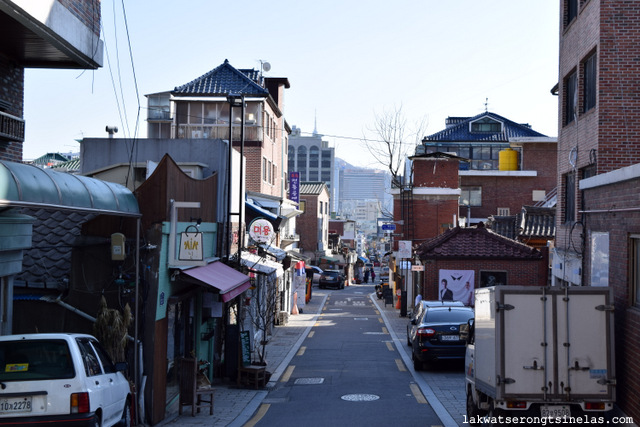
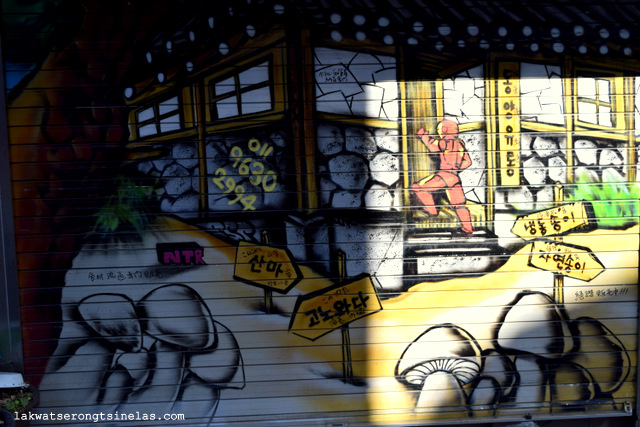
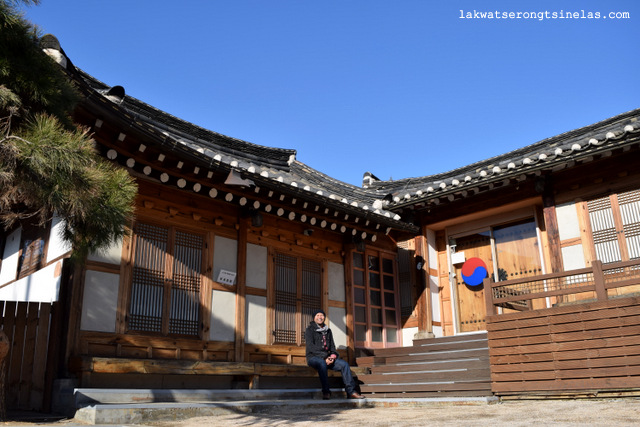

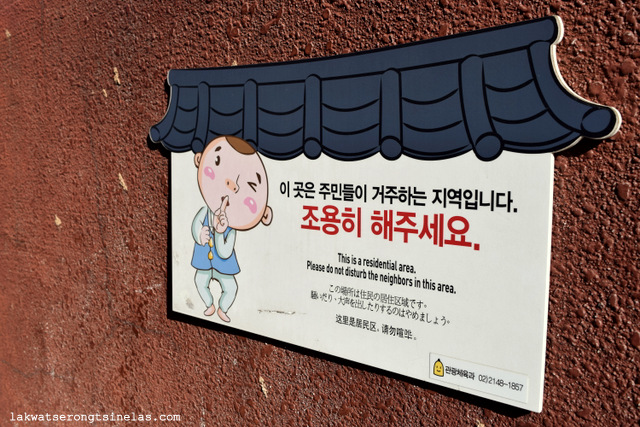
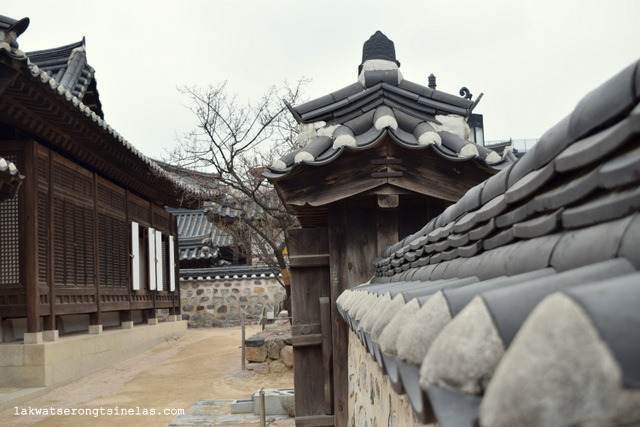
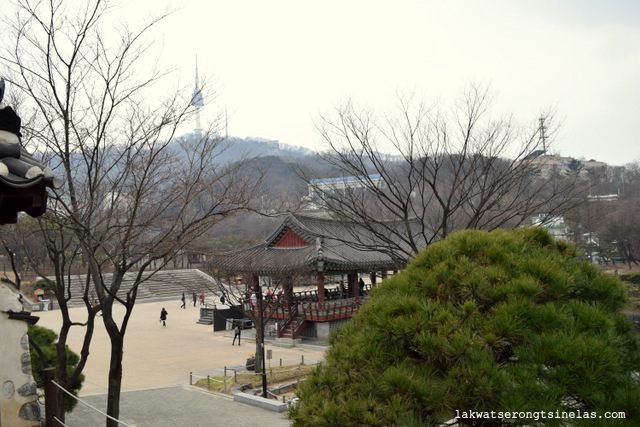



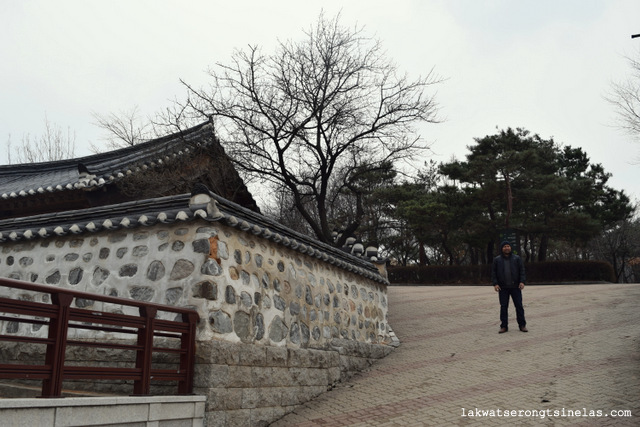



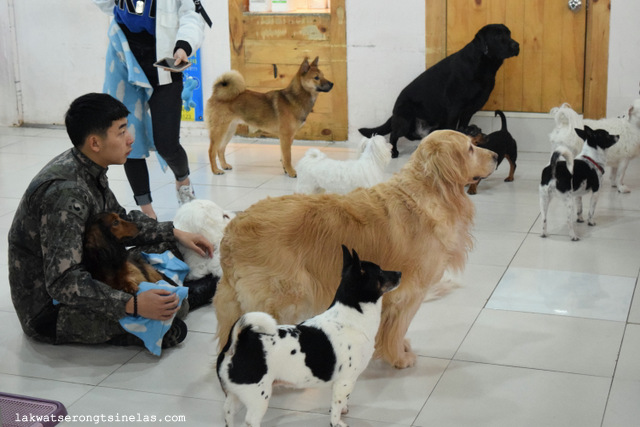


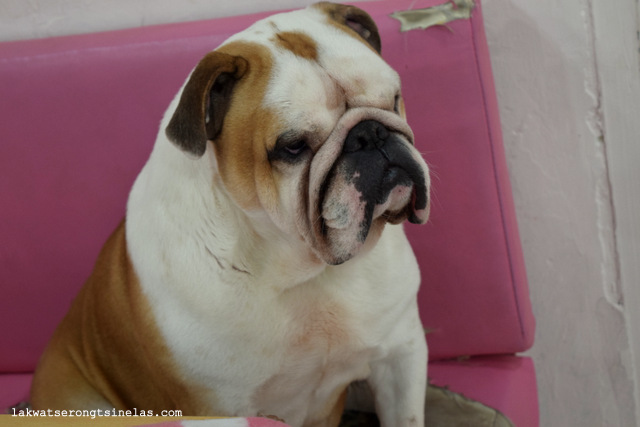

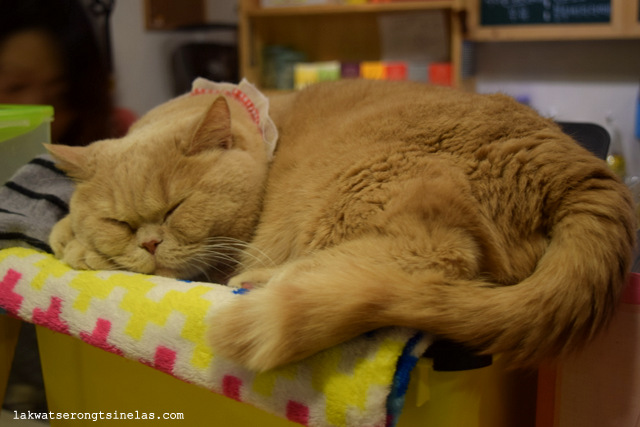


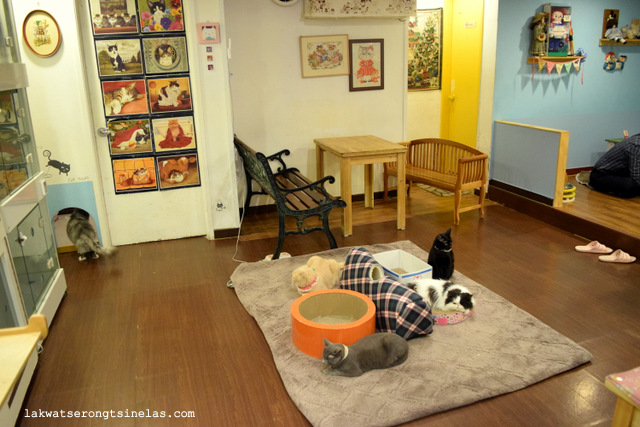







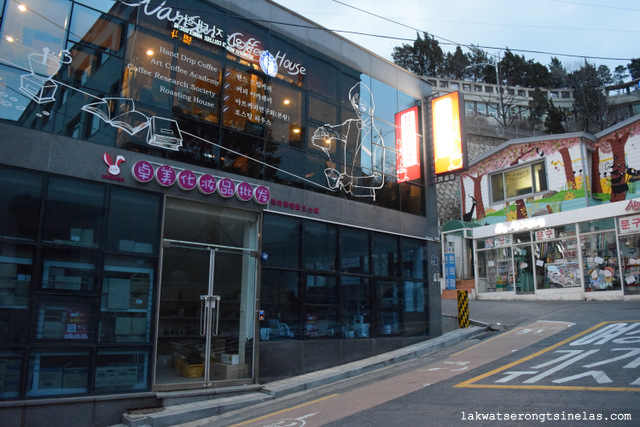







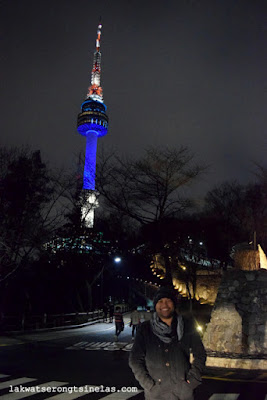





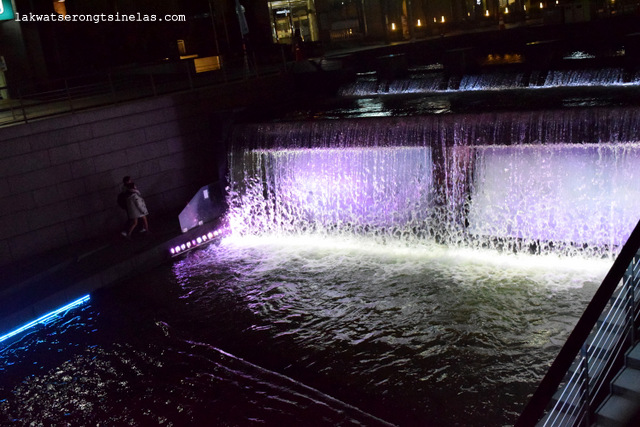

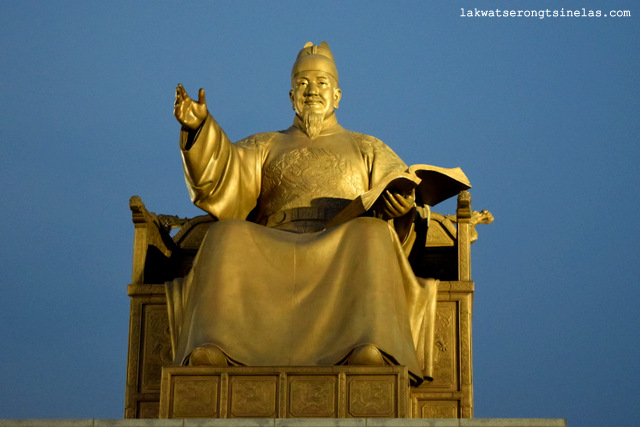








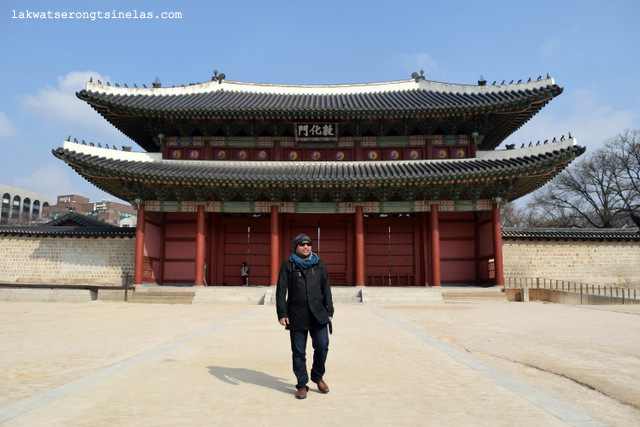

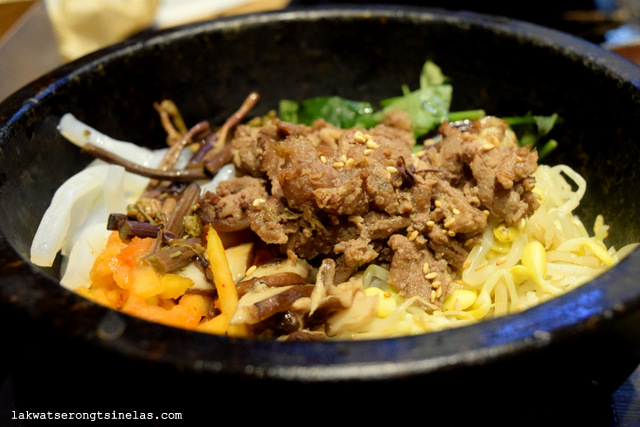






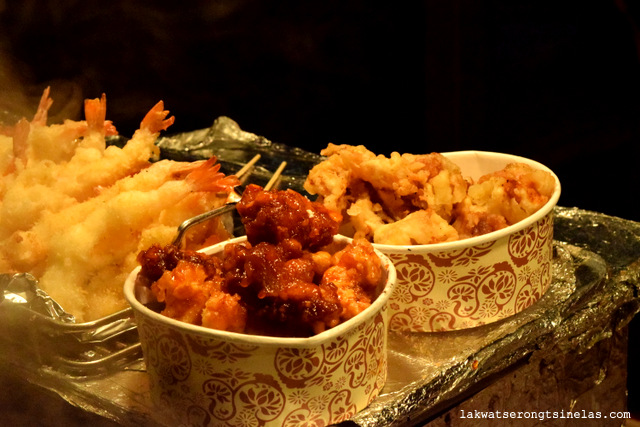


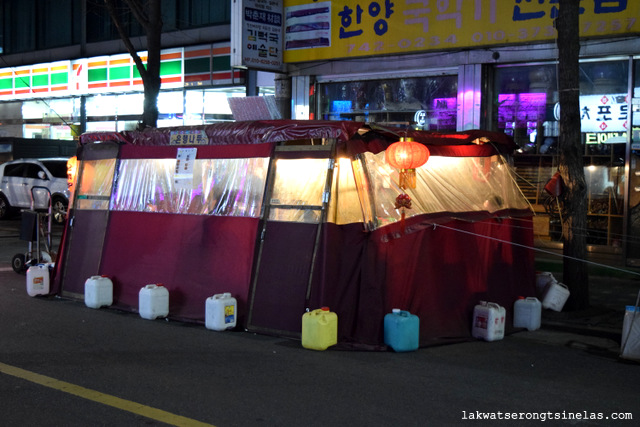
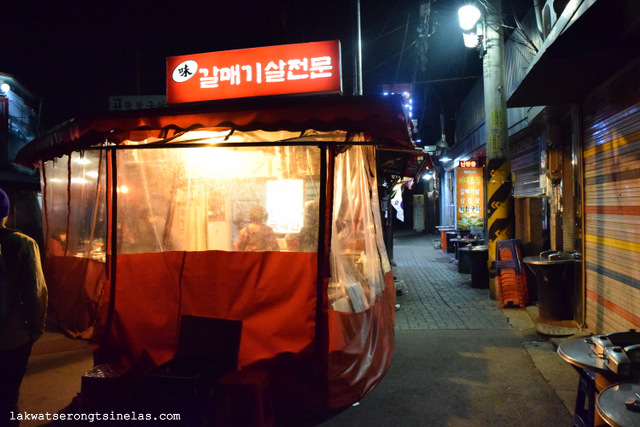

































0 comments